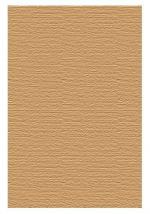|
This section contains 8,502 words (approx. 29 pages at 300 words per page) |

|
SOURCE: Nelson, Robert J. Willa Cather and France: In Search of the Lost Language, pp. 54–61, 98–104, 127–30. Chicago: University of Illinois Press, 1988.
In the following excerpt, Nelson explores the role of immigrants in Cather's stories, asserting that these characters represent Cather's struggle with the principles of American materialism.
“flavia and Her Artists” (1905)
In her “researches” into the life of the prairie which was to become the cosmopolis of so many of her early stories and early novels, Willa Cather offers what the contemporary French geneticist Albert Jacquard sees as the chief lesson of the workings of human biology: a “eulogy of difference.”1 For Cather that eulogy is due to the multilingual, multicultural demographics of the Nebraska and its avatars in which she sets her prairie novels and stories. The perceptive French Catherian, Michel Gervaud, has written: “Anticipating sociologists and novelists who, one day, would give evidence in their writings of...
|
This section contains 8,502 words (approx. 29 pages at 300 words per page) |

|


